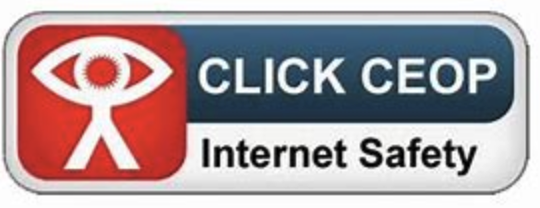INTENT
PSHE and Citizenship at St Edward’s CE Academy’s aims to equip pupils with essential skills for life; it intends to develop the whole child through carefully planned and resourced lessons that develop the knowledge, skills and attributes children need to protect and enhance their wellbeing. Through these lessons, pupils will learn how to stay safe and healthy, build and maintain successful relationships and become active citizens, responsibly participating in society around them. Successful PSHE curriculum coverage is a vital tool in preparing pupils for life in society now and in the future. The planned units aim to cover a wide range of the social and emotional aspects of learning, enabling children to develop their identity and self-esteem as active, confident members of their community. The themes and topics support social, moral, spiritual and cultural development, including British Values, and provide pupils with protective teaching on essential safeguarding issues, developing their knowledge of when and how they can ask for help.
The long term planning follows the ‘thematic model’, in line with the Learning Outcomes and Core Themes provided by the PSHE Association Programme of Study which is widely used by schools in England and is recommended and referred to by the DfE in all key documentation relating to PSHE provision in schools. The scheme of work fulfils the requirements of 2020 Statutory Relationships and Health Education, setting these learning intentions in the context of a broad and balanced PSHE curriculum and are based on the three core areas: Health and Wellbeing, Relationships and Living in the Wider World.
| Health and Wellbeing | Relationships | Living in the Wider World |
| Topics include Personal identity Keeping safe Healthy lifestyles (eg diet, mental health, effects of smoking, alcohol) | Topics include Healthy relationships – family and friends Relationships and Sex Education Diversity – tackling prejudice and discrimination | Topics include Economic wellbeing Employability and enterprise Careers Rights and Responsibilities |
The three core units are taught in a spiral curriculum that revisits each theme every two years. This enables pupils to recall and build upon previous learning, exploring the underlying principles of PSHE education regularly at a depth that is appropriate for the age and stage of the child. The PSHE curriculum is also mapped against other curriculum areas to ensure that pupils can make links between ideas and develop their understanding eg the science of puberty is covered at the same time as the emotional effects of puberty. Lessons also signpost key words, building a rich vocabulary to develop understanding.
In PSHE and RSE lessons pupils develop their understanding of
- Identity (their personal qualities, attitudes, skills, attributes and achievements and what influences these; understanding and maintaining boundaries around their personal privacy, including online)
- Relationships (including different types and in different settings, including online)
- A healthy (including physically, emotionally and socially), balanced lifestyle (including within relationships, work-life, exercise and rest, spending and saving and lifestyle choices)
- Risk (identification, assessment and how to manage risk, rather than simply the avoidance of risk for self and others) and safety (including behaviour and strategies to employ in different settings, including online in an increasingly connected world
- Diversity and equality (in all its forms, with due regard to the protected characteristics set out in the Equality Act 2010)
- Rights (including the notion of universal human rights), responsibilities (including fairness and justice) and consent (in different contexts)
- Change (as something to be managed) and resilience (the skills, strategies and ‘inner resources’ we can draw on when faced with challenging change or circumstance)
- Power (how it is used and encountered in a variety of contexts including online; how it manifests through behaviours including bullying, persuasion, coercion and how it can be challenged or managed through negotiation and ‘win-win’ outcomes)
- Careers (including enterprise, employability and economic understanding)
A key principle of high-quality PSHE education is that it should be inclusive and relevant for all pupils. Resources included in schemes of learning are gender-neutral when appropriate and does not refer to the socio-economic, cultural or family background of those involved or their sexual orientation.
IMPLEMENTATION
PSHE is delivered by House Tutors during one lesson per week (30 lessons over the year) In addition, these lessons are supplemented by ‘Drop Down Days’ (3 per year) to enable the Academy to deliver whole year group activities and to facilitate the delivery of sessions by outside speakers (such as Holocaust workshops by the Holocaust Educational Trust, sessions with employers for careers, NATWEST money matters activities, Youth Workers or the Staffordshire Road Safety Officer)
Drop Down Days also allow specialist teachers to deliver certain content based on best practice (such as online safety, PREVENT or contraception)
Lessons are planned to be delivered in a creative manner, using many approaches such as role play, discussion and games. These activities enable children to build confidence and resilience. The lesson resources are sourced from PSHE Association recommended websites including, but not limited to, Premier League Primary Stars, Loudmouth, NSPCC, Childline and ‘Think you know’. This ensures that resources are appropriate for the ages of pupils and meet the needs of the curriculum.
Assessment in PSHE does not simply focus on factual knowledge. It should provide an opportunity to assess
- an increase in knowledge (before I only knew … now I also know …)
- a change or reconfirmation of a belief (I used to feel … but I now feel …)
- a richer vocabulary (before I would have said … but now I can say …)
- increased competence in skills (before I didn’t how to … but now I know how to …)
- new strategies acquired (before I wouldn’t have known how to … but now I know new/more effective ways to…
- an increased confidence (before I could/would say and do … but now I feel I am able to say and do …)
- changed and challenged assumptions (before I thought that … but now I realise that was just a myth or a stereotype)
IMPACT
Pupils are enabled to develop the vocabulary and confidence needed to clearly articulate their thoughts and feelings in a climate of openness, trust and respect, and know when and how they can seek the support of others. They will apply their understanding of society to their everyday interactions, from the classroom to the wider community of which they are a part. The delivery of a board PSHE curriculum supports the active development of a school culture that prioritises physical and mental health and wellbeing, providing pupils with skills to evaluate and understand their own wellbeing needs, practise self-care and contribute positively to the wellbeing of those around them.
Successful PSHE education can have a positive impact on the whole child, including their academic development and progress, by mitigating any social and emotional barriers to learning and building confidence and self-esteem. Evidence suggests that successful PSHE education also helps disadvantaged and vulnerable pupils achieve to a greater extent by raising aspirations and empowering them with skills to overcome barriers they face. This can ensure that all pupils are able to develop the knowledge, skills and attributes they need to succeed at school and in the wider world.


